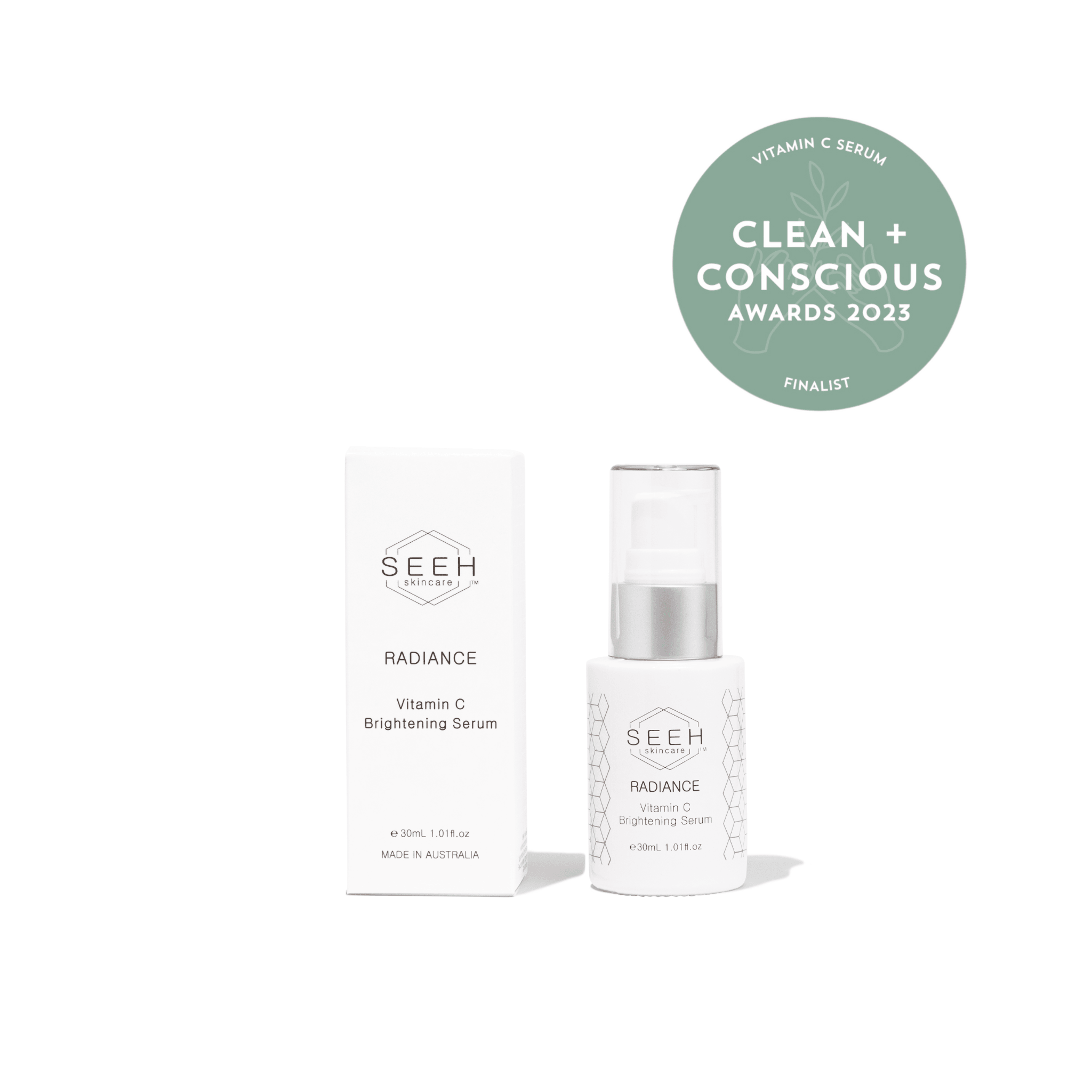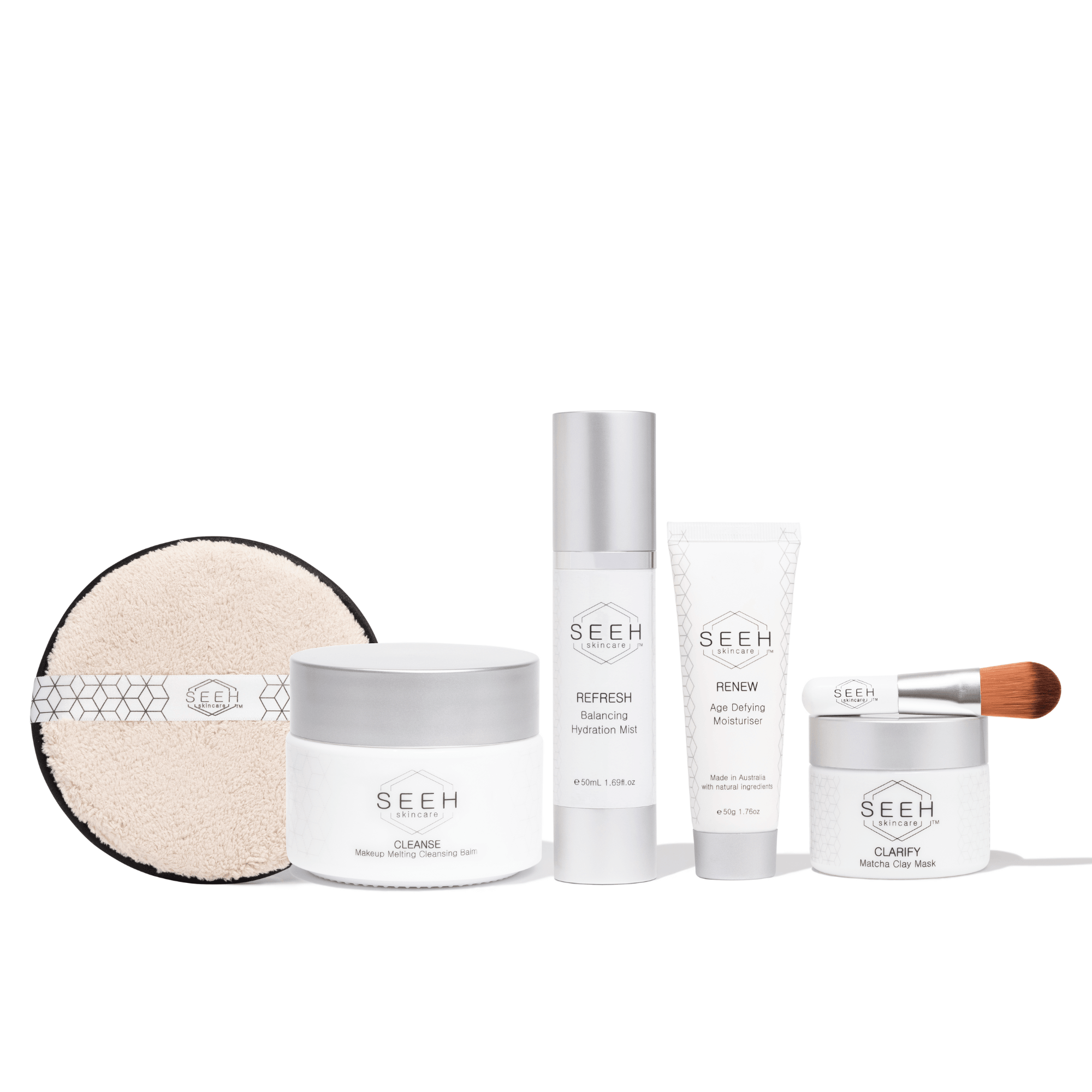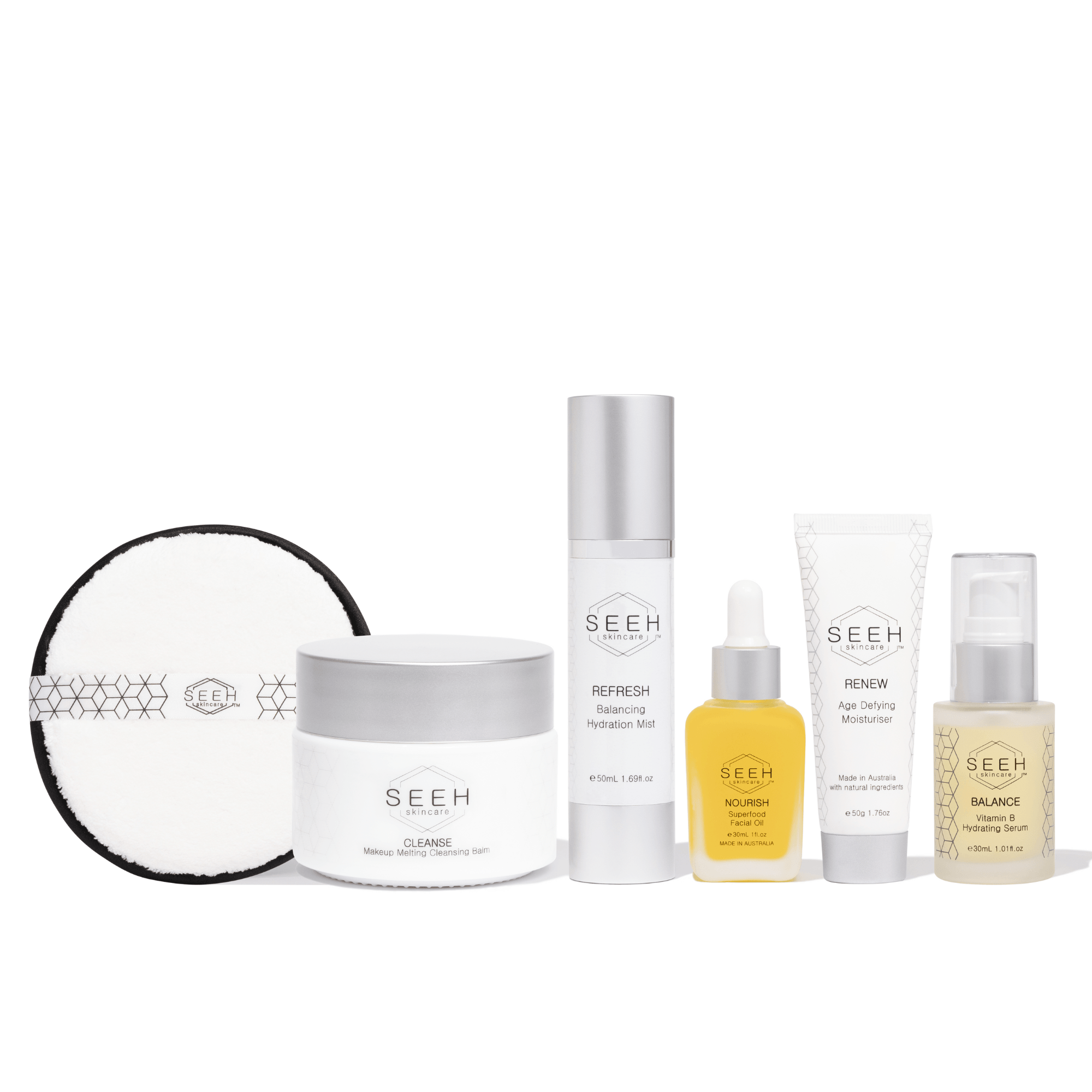It’s no secret that your body goes through some big changes while you’re pregnant, including your skin. Unfortunately, a radiant pregnancy glow isn’t the difference you might see. Acne, sensitivity, dryness and hyperpigmentation are common when you’re expecting too.
Here’s how to cope with skin changes using pregnancy-approved ingredients.
Why does my skin change during pregnancy?
Hormonal changes and increased blood circulation in your body are the reasons for your changing complexion. Most changes are natural, common and can be tackled with a few updates to your skincare routine.
1) Melasma (Hyperpigmentation)
Called the "mask of pregnancy", melasma is hyperpigmentation and something many pregnant women experience. Dark spots can appear on your forehead, nose, and cheeks. It usually begins in the second and third trimesters due to an increase of melanin, the pigment responsible for skin colour.
Does melasma go away?
Dark spots should begin to fade after giving birth, however you can help speed up the process with one of our fav pregnancy-approved skincare heroes, Vitamin C. Known for its brightening ability, Vitamin C helps fade dark patches and improves the overall appearance of skin.
Fade melasma with our RADIANCE Vitamin C Brightening Serum. This gem works wonders in tackling uneven skin tone and improving overall texture and is safe to use while pregnant and breastfeeding.
UV rays exacerbate hyperpigmentation so apply mineral SPF daily and wear a wide brim hat when outside to minimise or prevent melasma.
2) Acne
Even if you don’t usually struggle with acne, breakouts during pregnancy are common. The key is to focus on preventing scarring as you may develop post-inflammatory hyperpigmentation; these are dark patches left on the skin after acne heals.
Never pick your pimples and always use sun protection to avoid scarring.
How can pregnant acne be treated safely?
Use a gentle pregnancy-safe exfoliator that won’t further dry or irritate skin but will keep pores clear and reduce the chance of breakouts.
SEEH Smooth Exfoliating Polish is formulated with natural apricot seed powder and rice powder to gently buff skin and remove dead, dull cells. Our CLARIFY Matcha Clay Mask works to deeply detoxify and brighten skin while refining the appearance of pores.
3) Dehydration and dryness
Experiencing dry flaky, scaly and parched-looking skin during pregnancy is normal for many women.
Dryness and dehydration are actually 2 different skin concerns - dry skin lacks oil, dehydrated skin lacks water - but the treatments for each complement the other. Increase hydration with BALANCE Vitamin B Hydrating Serum. With moisture-boosting hyaluronic acid, it’s a big drink of water for thirsty skin. To address dryness, follow with RENEW Age Defying Moisturiser and NOURISH Superfood Facial Oil. Together, they bring essential fatty acids, vitamins, and ceramides to smooth rough skin and seal in moisture.
A few other changes can help dry skin too; using a humidifier adds moisture to the air which your skin can absorb. Also try to avoid exposing your skin to extreme temperatures - hot or cold. For example, hot showers, air conditioning, and central heating.
4) Pregnancy glow
Yay! This is one of the positive skin changes to look forward to. You can thank the increased blood circulation for your rosy glow. We don’t have much to say about this one except enjoy looking radiant!
5) Increased sensitivity
Don’t be surprised if your skin starts acting out with irritation - even using your regular products.
Fragrance, some essential oils, strong active ingredients, and complex routines don’t always play nice during pregnancy. It may mean switching to a simpler, fragrance-free routine with minimal active ingredients to keep skin calm and comfortable.
Skincare ingredients and products to avoid during pregnancy (and swaps!)
1) Retinol / Retinoids
You’ll need to press pause on the use of all products containing retinoids and retinol (Vitamin A) while pregnant and breastfeeding. This includes all forms of prescription retinoids - such as tretinoin, and isotretinoin - and over the counter retinol products, such as serums.
Pregnancy-safe anti-ageing swap: Sacha Inchi peptides - a multi-functional, anti-ageing ingredient clinically proven to reduce skin sagging by up to 45% within 28 days. Try our RENEW Age Defying Moisturiser with Sacha Inchi peptides and Kangaroo Paw, also proven to rapidly decrease the appearance of fine lines.
Pregnancy-safe acne management swap: Naturally derived AHA fruit acids, apricot seed and rice powders, salicylic acid (max 2%), and lactic acid can help decongest skin and promote a clear complexion. Hyaluronic acid and niacinamide can also safely help balance oil production.
2) Hydroquinone and Hydroquinone arbutin
Used topically to tackle pigmentation, hydroquinone is not recommended during pregnancy.
Pregnancy-safe brightening swap: Kakadu Plum (natural Vitamin C) and Sodium Ascorbyl Phosphate (Vitamin C derivative) are excellent at brightening skin and fading pigmentation.
3) Phthalates
One to avoid at all times, not just during pregnancy, phthalates is a chemical and known endocrine disruptor.
4) Chemical sunscreens
A 2020 study confirmed 6 ingredients found in chemical sunscreens are absorbed into the bloodstream through the skin. These are avobenzone, oxybenzone, octocrylene, homosalate, octisalate and octinoxate. Oxybenzone has been linked to Hirschsprung's disease.
Play it safe, and choose a mineral sunscreen instead with zinc oxide and / or titanium dioxide. These natural sun-blockers sit on, rather than being absorbed into, the skin.
I hope this information lends a hand in guiding your pregnancy-safe skincare routine! If you have any questions, reach out.
Kim xx






































































